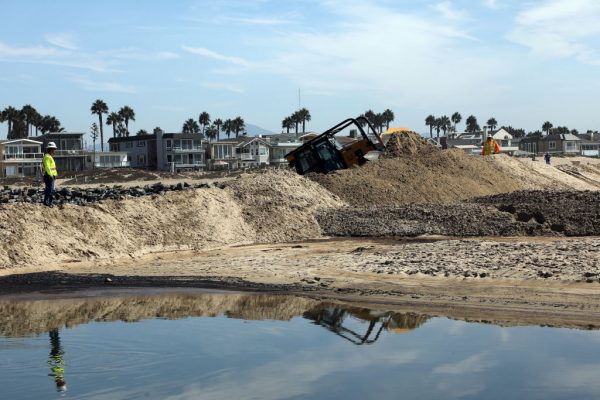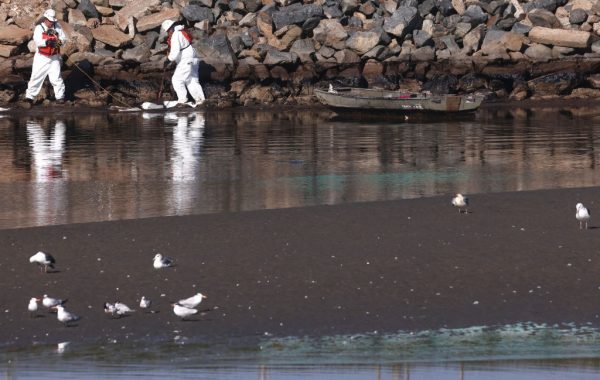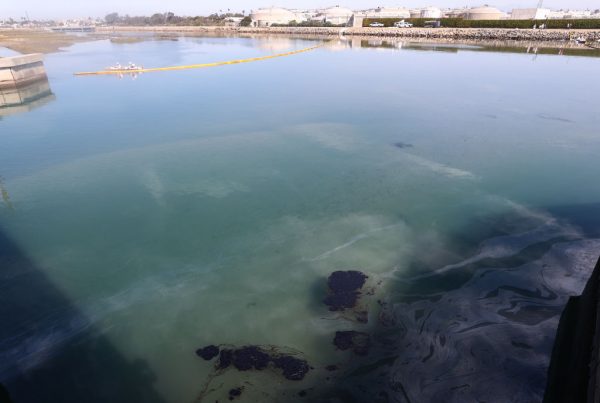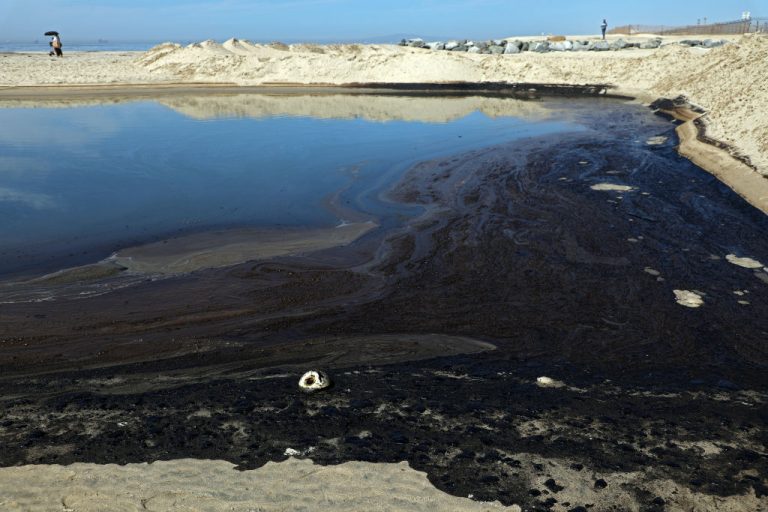On Oct. 2 a broken pipeline, owned and operated by Amplify Energy Corp., is being blamed for a massive oil spill that leaked an estimated 126,000 gallons of oil along the Southern California coast.
The spill is suspected of originating along a 17.5 mile stretch of pipeline located approximately 90-feet beneath the surface off the Orange county coast.
The spill reached the shores of Huntington beach late Saturday with cleanup crews claiming to have already removed more than 3,000 gallons of oil, according to Orange County Supervisor Katrina Foley.
Huntington Beach is a seaside city located just 35-miles southeast of downtown Los Angeles. It’s known for its 9.5-mile stretch of sandy beach, mild climate and excellent surfing and beach culture.
People living and working in the area have said that they noticed the sheen and heavy oil smell Friday evening with the coast guard confirming on Saturday afternoon that an oil slick had been spotted.
Success
You are now signed up for our newsletter
Success
Check your email to complete sign up
Amplify Energy Corp has shut down operations of the pipeline and associated platforms with the company’s CEO, Martyn Willsher, stating that the pipeline was suctioned out so no more oil would spill.
On Sunday, booms were deployed in an attempt to contain the spill while divers sought to determine where exactly the leak was located and why it occurred.
Response time questioned
Residents and businesses in the area are questioning whether authorities reacted quickly enough to the oil spill which is being described as one of the largest in recent California history.
While people who live and work in the area noticed the spill on Friday evening it was not until Saturday afternoon that the Coast Guard confirmed the spill and then later Saturday night that the company that operates the pipeline shut down operations.
Garry Brown, president of the environmental group Orange County Coastkeeper, criticized the apparent lack of coordination between the Coast Guard and local officials.
“By the time it comes to the beach, it’s done tremendous damage. Our frustration is, it could have been averted if there was a quick response,” said Brown, who lives in Huntington Beach.
Huntington Beach Mayor, Kim Carr said, “In a year that has been filled with incredibly challenging issues this oil spill constitutes one of the most devastating situations that our community has dealt with in decades,” adding that, “We are doing everything in our power to protect the health and safety of our residents, our visitors and our natural habitats.” the Associated Press (AP) reported.

Threat to public health
The state Department of Fish and Wildlife warned residents of a “threat to public health” and cautioned people from consuming any fish or shellfish from near the shoreline from Huntington Beach to Dana Point, an area that stretches nearly 20-miles.
Orange County Supervisor Katrina Foley said, “You get the taste in the mouth just from the vapors in the air.”
David Rapchum, a lifetime resident of Huntington Beach, told AP, “For the amount of oil these things produce I don’t think it’s worth the risk,” adding that, “We need oil, but there’s always a question: Do we need it there?”
Not the first time
This is not the first time an oil spill has inundated the Southern California shores.
On Feb. 7, 1990 an oil tanker, American Trader, ran over its anchor off Huntington Beach spilling approximately 417,000 gallons of crude resulting in the deaths of fish and an estimated 3,400 birds.
In 2015, a pipeline ruptured north of Santa Barbara and sent 143,000 gallons of crude oil onto Refugio State Beach.

The area is home to numerous species of wildlife including endangered species like the snowy plover and humpback whales.
Miyoko Sakashita, director of the Center for Biological Diversity’s oceans program told AP, “The coastal areas off of Southern California are just really rich for wildlife, a key biodiversity hotspot.”
The effects of the oil spill on local wildlife is wide-ranging. Birds are particularly susceptible as once they are covered in oil they are unable to clean themselves and can’t monitor their own temperatures, Sakashita said, adding that whales, dolphins and other sea creatures have trouble breathing or die after swimming through the oil and breathing the toxic fumes.
“The oil spill just shows how dirty and dangerous oil drilling is and oil that gets into the water. It’s impossible to clean it up so it ends up washing up on our beaches and people come into contact with it and wildlife comes in contact with it,” she said. “It has long-lasting effects on the breeding and reproduction of animals.”

















